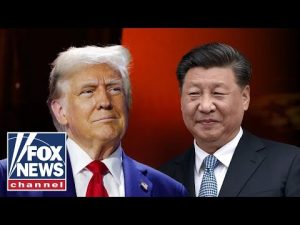In the world of political intrigue and global health mysteries, the origins of COVID-19 continue to ignite fierce debates. Just recently, a controversial claim emerged suggesting that the virus was more likely to have originated in the United States rather than in China. Such a claim naturally raises eyebrows and questions about trust and transparency in global health narratives. The intelligence community here has been working to unravel the truth, yet political intricacies complicate straightforward answers.
The American response to uncovering the origins of COVID-19 has been multifaceted. The House Select Subcommittee on the Coronavirus Pandemic has been tasked with digging deeper into this global health crisis, answering questions the public is eager to have clarified. On the surface, it sounds like a straightforward mission. Yet, within these corridors of power, access to facts seems bogged down by politics and layered interests.
One disturbing facet of this investigation is the alleged involvement of the United States in funding potentially dangerous research. Gain of function research, such as that associated with the Wuhan lab, has long been a contentious topic. Some scholars argue it increases understanding of potential pandemic pathogens. Others, however, see it as playing with fire, with risks that could far outweigh any benefits. The suggestion now is that U.S. funding may have inadvertently contributed to catalyzing this global health crisis.
The hesitation from various intelligence agencies to agree on the origins of COVID-19 is peculiar, to say the least. While some, like the FBI, leaned towards a lab-origin hypothesis, others resisted. Despite a lack of consensus, suspicions of politicized intelligence arise. In matters of global health and public trust, such waffling can undermine confidence in these institutions.
Reflecting on these developments forces America to reassess its own scientific endeavors and funding strategies. The current investigation into gain of function research isn’t just about past mistakes but about preventing future pandemics. It is crucial to prioritize safety and common sense, steering public funding away from high-risk experiments that do not clearly benefit humanity. It’s a time to learn, adapt, and ensure such a crisis does not unfold again from our own laboratories.







